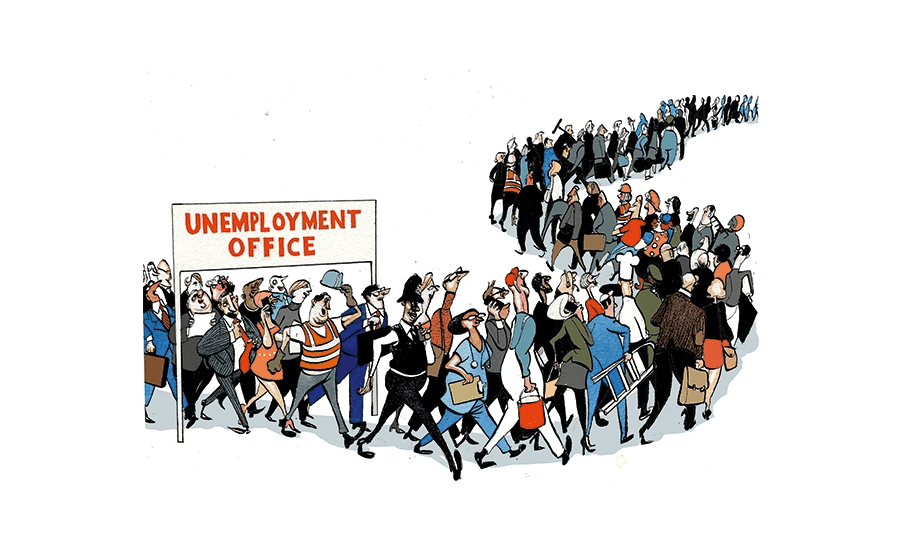The current government will do almost anything to avoid reforming welfare or the NHS. Last month, we were informed school leavers might be allowed to train as doctors without a traditional medical degree in an ill-conceived cosplay scheme. And it was reported yesterday that GPs may be encouraged to refer patients to life coaches, rather than issue sick notes, to help people get back into work.
Between the starts of 2019 and 2023, the number of economically inactive working adults with depression or anxiety jumped by 40 per cent to hit 1.35 million. There are 400,000 more people on long-term sickness than before the pandemic. Yet rather than hiring more staff to carry out face-to-face ‘fit to work’ tests, the government is proposing to scrap capability assessments altogether. At the same time, it’s hoping life coaches could support 50,000 people with long-term mental health, debt or other problems return to their jobs.
A number of questions spring to mind reading about this latest wheeze. Has it been piloted? How many life coaches will be required? And, what exactly is a life coach?
A quick Google suggests these mentors are ‘employed to help people attain their goals in life’. Many websites draw on the usual wellness jargon: ‘empowerment’, ‘overcoming obstacles’, ‘leading your best life’. Despite instances – perhaps most notably the mysterious group Lighthouse, which was the subject of a BBC documentary A Very British Cult – where mentee vulnerabilities have been exploited, their aims seem noble and will generally be pursued with the best of intentions.
Yet the proposal has a whiff of desperation. The UK now has a very tight labour market – there are still around one million vacancies – and as the welfare bill soars ministers are clamouring to get more people into work. Yesterday, the boss of Sainsbury’s called for people working on farms and in factories to be added to the government’s shortage occupation list, making it easier for them to qualify for a Skilled Worker Visa. Since pre-Covid, staff turnover rates have increased significantly across the economy, but particularly in areas like accommodation and food services. The result is higher staffing costs and, as Simon Roberts has warned, higher prices.
Although jobs are vastly more attractive today than in the recent past, people aren’t happy. They still want better jobs, more pay, improved conditions. They’re ‘quietly quitting’ and ‘acting their wage’; euphemisms for doing the bare minimum. And they can afford it, because companies are at the mercy of those who work – or don’t – for them. But it’s not just 20-something ‘lazy girls’ who are giving ministers a headache: the over-50s are retiring in such great numbers that the government is ‘actively looking’ at a proposal for work coaches to hold sessions in GP surgeries, where they could reach potential older workers ‘more easily’.
As the wellness culture grows and grows (McKinsey estimates the industry is worth, globally, around £1.26 trillion), so too, inevitably, will the number of life and career coaches
The new crop of personal cheerleaders who help mentees ‘make, meet and exceed personal and professional goals’ are currently unregulated. Formal training is available, and there is now an abundance of general coaching and mentoring courses, but is not required to take on clients. Alongside these undergraduate and post-graduate programmes, a range of professional coaching associations have sprung up to provide accreditation.
The blurring of lines between medical and non-medical professionals is long-standing. Dieticians (state registered), and freelance nutritionists. Psychiatrists, who are medical doctors, and psychologists, who are not usually medically qualified. As the wellness culture grows and grows (McKinsey estimates the industry is worth, globally, around £1.26 trillion), so too, inevitably, will the number of life and career coaches. They don’t need to be regulated – far too many jobs in the British economy now require occupational licensing – but we do need a clearer view of what they are supposed to do.
The benefits of many ‘wellness’ treatments exist only in the realms of the theoretical. And if there is no attempt to measure the impact these coaches will have on retirees or the long-term sick, then the government will simply find itself hiring unproductive workers at the taxpayers’ expense, at a time when output is barely back to pre-pandemic levels. Britain cannot afford to keep shovelling claimants onto benefits by deeming them to have ‘limited capability for work-related activity’ without a proper assessment. Those same people cannot languish on welfare because we are failing to provide them with the right care.
There are solutions – bold reform of the NHS so that time-stretched doctors can treat patients rather than outsource, or doubling down on fitness to work tests to ensure support is directed where it most needed – but the issue is complex. Mental ill health is a delicate subject. The government’s response has been too clumsy.






Comments